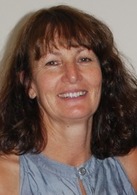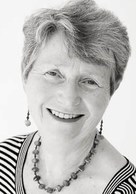Results of the 2015 Competition
First: ‘Like Light’ by Janet Newman (Levin)
Second: ‘Piece of Sky’ by Kay Meyer (Eastbourne) Third: ‘Till Death’ by Megan Frith (Takanini) Highly Commended: ‘Yellow Heaven’ by Vivienne Bailey (Wellington) ‘Setting the Clock’ by Celia Coyne (Christchurch) ‘Good Looks’ by Febriani Idrus (Dunedin) ‘Mind Mapping’ by Linley Jones (Auckland) ‘The Nelson/Thompson Faction’ by Ren Kempthorne (Nelson) ‘Genesis’ by Eileen Merriman (Auckland) ‘Cobalt Blue’ by Hayley Solomon (Blenheim) The winning stories were published in the anthology Horizons 2 The judge, Ted Dawe, provided this report: A short story competition is like Forrest Gump's box of chocolates – you never know what's going to come up next. There were plenty of tasty treats among this assortment. I heard Ben Okri on the radio during the weekend telling listeners that the short story is still the most ideal training ground for the novel. It contains all the features of a novel, except the length. This makes it less arduous (novels can be a long slog) but more demanding. In a short story everything must contribute to the final effect. There is nothing gratuitous; nothing left over. As Chekov proclaimed in his 'rules to writing short stories'. If there is a pistol mentioned on the first page, it must be fired before the final sentence. A good short story should be a world in a grain of sand. I was forwarded 13 short stories to adjudicate upon. The 10 short listed, and then 3 extra which were simply too good to be left out. They covered a variety of subjects ranging from the rewriting of the battle of Trafalgar, a young man's quest for the perfect woman (or at least one superior to a Holden V8), urban myths, the terminally ill, the snowy high country in the Middle East through to the more recognisable domain of the literary short story which is concerned with self discovery and revelation. The standard of written prose for all 13 stories was of a sufficiently high level of competence that the writers were able to set their imaginations free and cover ambitious territory. With any creative endeavour there are no guarantees when it comes to the success of the outcome. Sometimes writers chose topics that were far too big for the scope of a short story. Others were more concerned with a particularly literary device rather than the other key requisites; tone, authenticity, reader engagement. When I came to select the winner I felt that there were five stories that stood out. They each had their own charms and merits. What distinguished the winner was the ambitious scope of the subject matter, the seamless transition of narration and the quality of the writing. |




